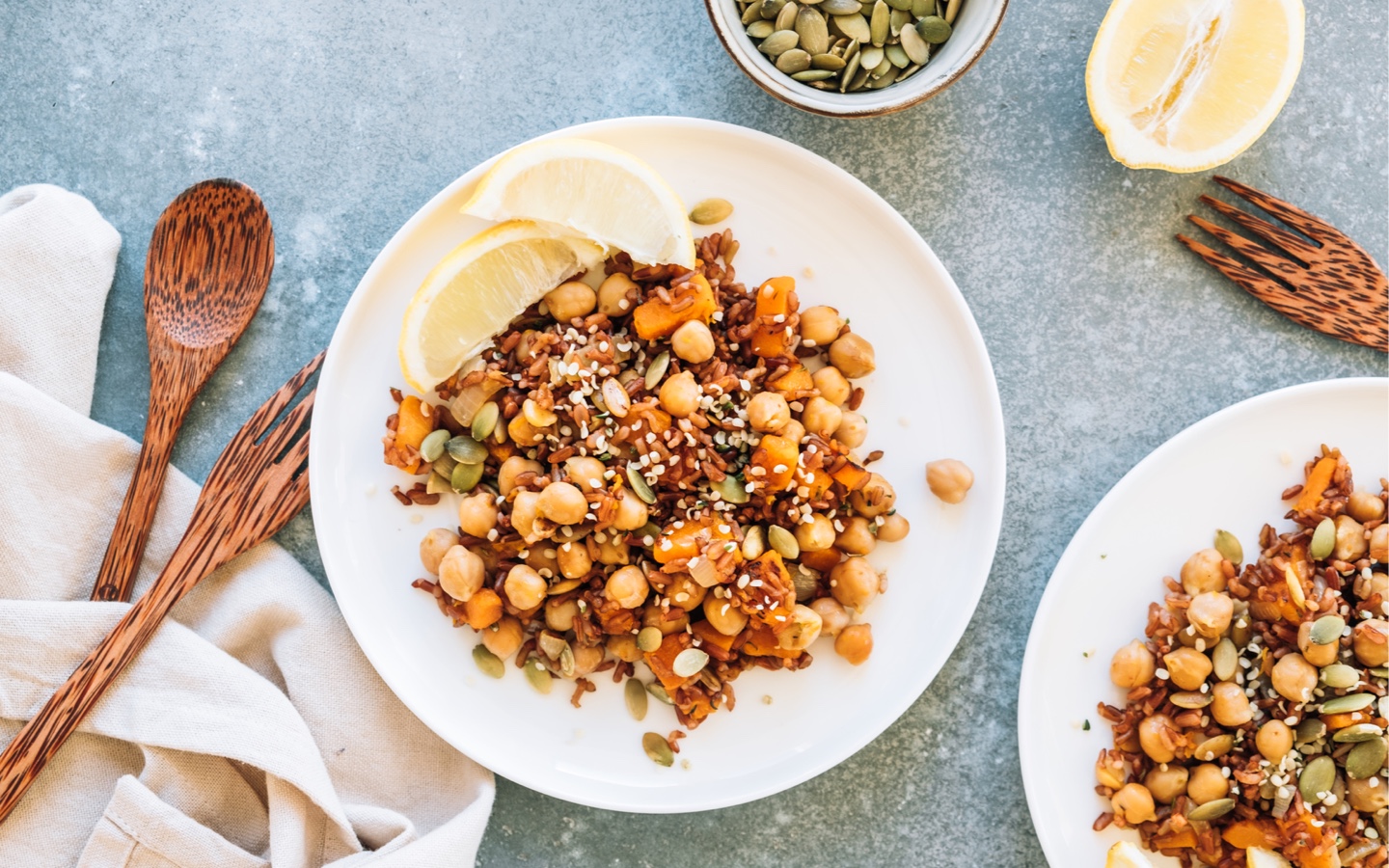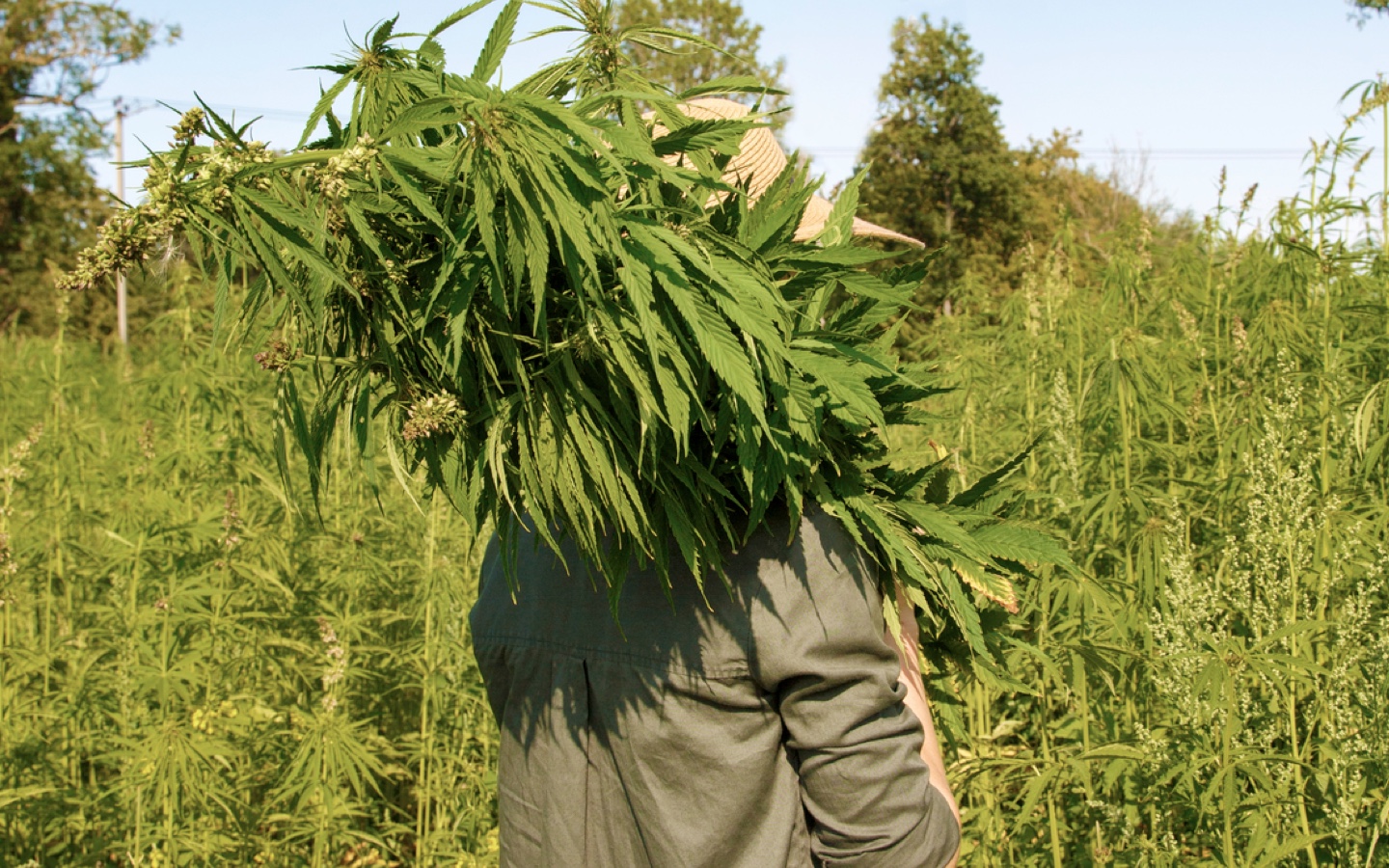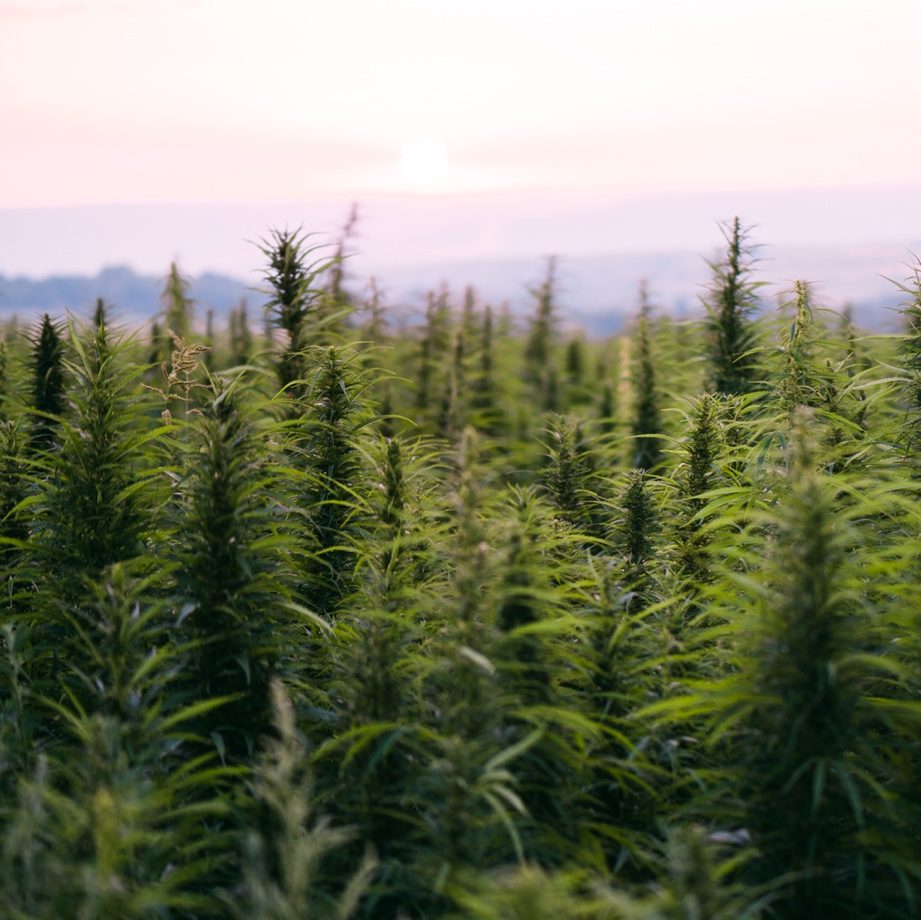Hemp is a superplant, and one of the most sustainable natural fibers in the world, used for everything from clothing and medicine to building materials and oils. But the history of hemp is complicated.
Hemp is a sustainable, multi-dimensional plant with more than 60,000 uses, from home-building and medicine to clothing. The earliest known uses of hemp were in 8,000 BC, when ancient peoples used hemp for pottery, paper, clothing, rituals, and food. And even as recently as 1916, the USDA published data that showed hemp produced four times more paper per acre than trees.
Hemp is also incredibly sustainable because it’s a weed, so it grows with little water, no pesticides, and doesn’t take up much space. It’s also biodegradable and studies have shown that the crops return up to 70 percent of their nutrients to the soil (which is important for soil longevity and health) and they even sequester carbon dioxide. Did someone say superplant? Hemp also produces little waste because nearly every part of the plant can be used. The fibers of the stalk can be made into textiles and rope, its core can be used for paper and construction materials, the seeds provide nutrients that can be added to foods, and the oil can be used for cooking or for industrial products like paint and plastics. You can even use the leaves to make juice.
Much like cotton, hemp can be produced organically in soil that has little or no fertilizers and pesticides, or non-organically. However, organic hemp is more sustainable, as it produces less waste and doesn’t introduce toxic chemicals into the environment. When you think about the overall environmental footprint of the hemp you buy — it’s also important to consider processing, and, in the case of materials, dying. Organic hemp facilities are required to use responsible methods to process the natural fiber and chemically dyed hemp products are harmful for you and the environment.

Read more: Why Cotton is THE Thing You Should Always Buy Organic
Despite its myriad uses and sustainability, hemp has had a bad rap for years. Growing hemp was banned in the U.S. in 1970 as part of the war on drugs. Marijuana was classified as a Schedule 1 drug during that time, and because hemp is the same species of plant, it was also banned. While hemp could be used in seed form and for oil during those years, the industry found itself restricted from producing hemp for other use-cases.
But hemp and cannabis differ — they both contain CBD and THC, but the main difference is the amount of each that they contain. Cannabis has more THC, while hemp contains more CBD, meaning that hemp is usually not hallucinogenic. Hemp can also be used for lots of non-medical purposes, like our organic hemp sheets and organic hemp duvet cover, while cannabis is mainly consumed as a medicinal or recreational drug.
Recently, though, those Schedule 1 restrictions have changed. Under new legislation in 2018, hemp was removed from the list of Schedule 1 substances (because it contains 0.3 percent THC or less), which has created tons of space for the industry to grow. But that regulatory change also made things more complicated for hemp farmers, as state-by-state regulations differed and farmers flooded the market. Today, hemp is used to make textiles, seeds for oil and eating, CBD production, and so much more.
In 2020, the global industrial hemp market was valued at $3.61 billion and it’s expected to expand by 16.2 percent per year until 2028. While the pandemic presented trade challenges for the industry, it has still managed to see significant growth. In a report from Grand View Research, researchers highlighted the need for eco-friendly building products in the future — a niche that hemp can help fill. Hemp is used in thermal insulation, construction materials, fiberglass alternatives, and even automotive products. You can find hemp in oil paints, printing inks, chainsaw lubricants, and putty. And paper produced from hemp fiber requires far fewer chemicals for processing compared to paper produced with wood pulp.
Read more: The Incredible, Renewable Power of Linen
If you go to your local pharmacy, you’re also likely to see hemp-based beauty and personal care products like soaps, hand lotions, bath gels, massage oils, and more. And hemp seeds are often used to add nutritional value to food products.
But Shawn Lucus, an assistant professor of organic agriculture at Kentucky State University and an industrial hemp specialist, says that growing hemp is still complicated for farmers. Many new farmers joined the industry after the 2018 bill was passed, which caused an overall drop in sales for individual farmers. The bill resulted in a glut of hemp hitting the market,” he says, “but not enough processing capacity to process the material, and even if the capacity was present, not enough demand to use up that hemp.”
Plus, hemp crop has been newly reintroduced in many states, which means it’ll take time to really see production pick up. And the market for sustainable fibers and grains will also take time to evolve, as the U.S. still needs better infrastructure to allow farmers to process the grains they grow.
“In the long term, I think the markets will stabilize and find a new equilibrium but the industry is still maturing,” says Lucas, noting that he expects farming to grow at a more sensible pace in the future with fewer hemp farmers joining the industry and then bailing. He hopes those who do stay, will stay for good.

Read more: How the Responsible Wool Standard Elevates Farming
Have feedback on our story? Email us at [email protected] to let us know what you think.

Shop Pillows
The Essential Organic Pillow Collection
Gentle, breathable, non-toxic support.







